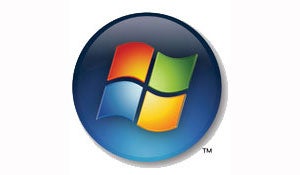Microsoft is already offering discounts on US pre-orders of its next-gen Windows version.
There are plenty of reasons why you'd want Windows 7. It appears to be more stable - less prone to crashes - than previous versions of Windows.
It's less annoying than Vista, which could deluge users with security warnings and other nagging reminders. Windows 7 has a cleaner, simpler interface.
One thing that isn't simple about Windows 7 is the flavours it comes in. Microsoft said it tried to keep the options easy, but that didn't happen.
You still must choose from Home Premium, Professional or Ultimate versions. (There also are Starter and Enterprise, but neither are sold directly to consumers.)
The consumer versions come in two variations, an upgrade and a full version. If you already have a Windows computer, buy the upgrade. If you're building a computer from scratch in the basement and don't have an unused copy of XP or Vista that you've already bought, you'll need the full version.
American retailers such as Amazon.com and Best Buy are taking pre-orders for the Home Premium upgrade and the Professional upgrade, for $50 and $100, respectively. At release, those will cost $120 and $200.
Here is advice on how to consider a Windows 7 upgrade, depending on various scenarios:
* If you have Windows Vista Home Premium or Business, and you want the equivalent Windows 7 edition, pre-ordering the upgrade makes sense. You can trade up from Home Premium, or down from Business, with no extra hassle during installation. When your disk or download arrives on October 22, your PC will get a makeover, but your files, programs and settings should remain intact. (Don't tempt fate. Back up everything anyway.)
* If you have Vista Ultimate but you want a lesser version of Windows 7, you can do that, too, even though this "upgrade" will be a bit of a downgrade. Depending on whether you switch to Home Premium or Professional for Windows 7, you'd have to give up features like BitLocker, which protects data if the PC is stolen, or Windows XP Mode, which lets you run older programs that aren't compatible with Windows 7.
If you miss those high-end features you can upgrade back to Ultimate later. Microsoft hasn't said how much its "anytime upgrades" will cost.
* If you have Windows XP, upgrading to Windows 7 is possible if your PC is powerful enough. But it's a bit of extra work, requiring more care with the files on your machine.
First download and run Microsoft's Windows 7 Upgrade Advisor to make sure your hardware meets minimum requirements. Among them: You need to have 1 gigabyte of RAM (or 2 gigs if your computer is a 64-bit machine, a reference to how much data it processes at once). You'll also need at least 16 gigabytes of hard disk space available (or 20 gigs on a 64-bit machine).
The Upgrade Advisor gave my XP machine a green light for Windows 7, though it listed several programs I'd have to uninstall first, then reinstall after.
You can install any version of Windows 7 if your PC passes muster. Microsoft has a step-by-step guide online. It recommends you use a utility program on the Windows 7 disk, "Easy Transfer," to copy your files and settings onto an external drive. Then it walks you through a "custom" installation and helps you get your old files onto the updated PC.
Subscribe to Independent Premium to bookmark this article
Want to bookmark your favourite articles and stories to read or reference later? Start your Independent Premium subscription today.


Join our commenting forum
Join thought-provoking conversations, follow other Independent readers and see their replies